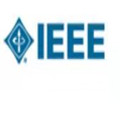Semantic encoders and decoders for digital semantic communication (SC) often struggle to adapt to variations in unpredictable channel environments and diverse system designs. To address these challenges, this paper proposes a novel framework for training semantic encoders and decoders to enable channel-adaptive digital SC. The core idea is to use binary symmetric channel (BSC) as a universal representation of generic digital communications, eliminating the need to specify channel environments or system designs. Based on this idea, our framework employs parallel BSCs to equivalently model the relationship between the encoder's output and the decoder's input. The bit-flip probabilities of these BSCs are treated as trainable parameters during end-to-end training, with varying levels of regularization applied to address diverse requirements in practical systems. The advantage of our framework is justified by developing a training-aware communication strategy for the inference stage. This strategy makes communication bit errors align with the pre-trained bit-flip probabilities by adaptively selecting power and modulation levels based on practical requirements and channel conditions. Simulation results demonstrate that the proposed framework outperforms existing training approaches in terms of both task performance and power consumption.
翻译:暂无翻译


